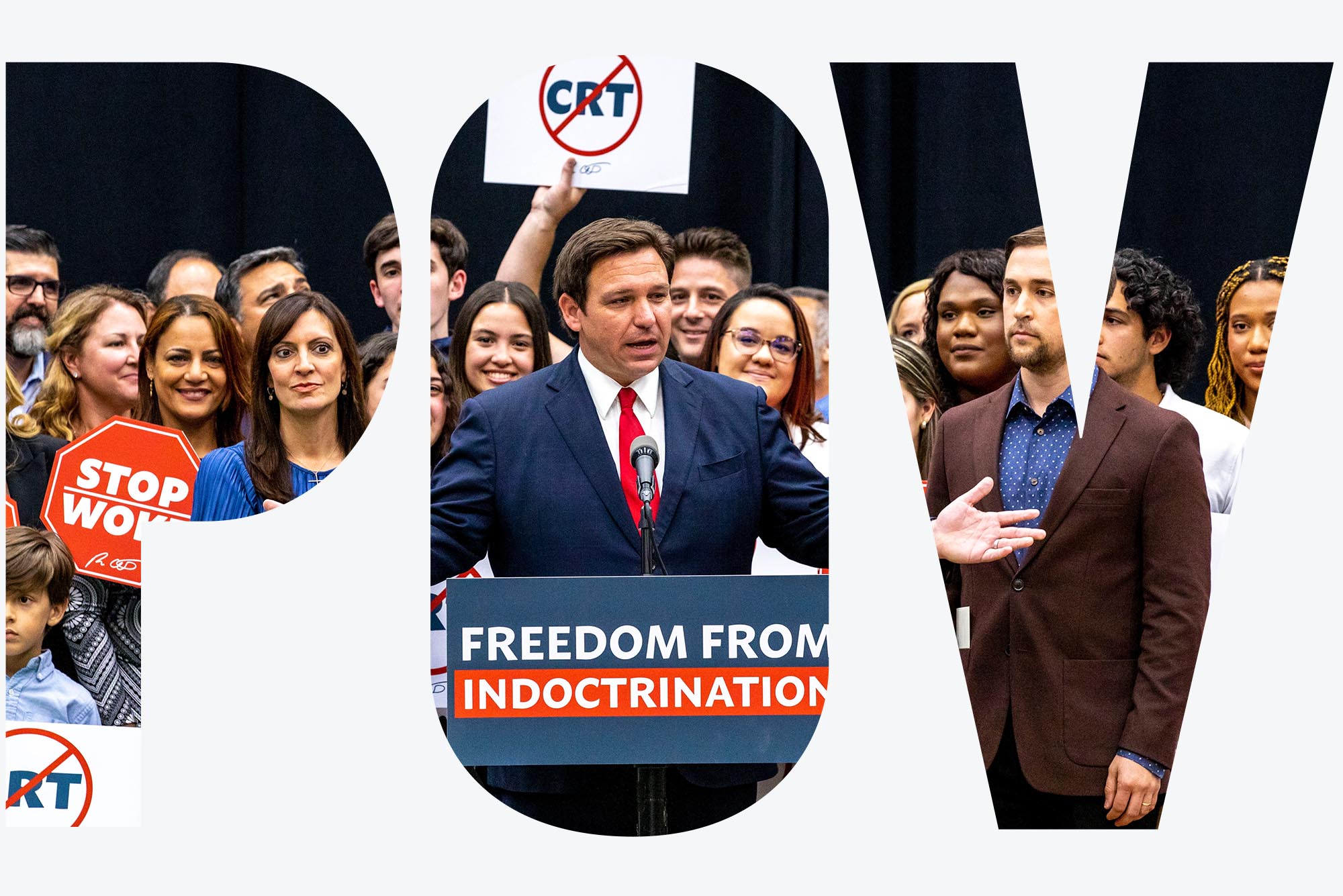POV: Florida Rejects AP African American Studies Course—Who Pays the Price?

Photo by Daniel A. Varela/Miami Herald, via Associated Press
POV: Florida Rejects AP African American Studies Course—Who Pays the Price?
Governor DeSantis “has decided that it’s good politics to cripple students by denying them access to the full richness and complexity of America”
About six months ago, when I was invited to review the Advanced Placement Program’s proposed course in African American studies, I was immediately excited to see that the College Board had given quite a prominent place to African history, far more than many African American studies textbooks have today. As an Africanist and historian who specializes in the history of early Africa, I was delighted, since over the years I had seen that students knew less and less about Africa than they knew in the 1980s when I started teaching.
I also reviewed the rest of the proposed curriculum, and frankly, did not see anything that struck me as particularly controversial from what I know is taught in our own program at BU, or at other institutions. So, I was surprised to see the strength and vehemence with which Florida’s school administration and governor [Ron DeSantis] denounced the proposed AP course. After banning the course from the state, they offered very little explanation or justification. But now we know why: they took umbrage at mentions of reparations, queer theory, and, of course, critical race theory. And writers they apparently deemed unacceptable—like Kimberlé Crenshaw and Ta-Nehisi Coates—were mentioned in the course materials, as well.
These are issues that are easy to politicize and to criticize, yet much more difficult to define. But the fact is, the AP course has become one more stepping stone in Governor DeSantis’ claim to be a rational version of Donald Trump, and has little, if anything, to do with education in Florida.
Inevitably, the critics fell upon mentions of “queer theory,” not because they knew or cared to know what it was, but because they knew that political constituents also did not know. They probably correctly concluded that queer theory would be unpopular because those constituents figured that “queer” meant “gay”—and, as Florida politicians already knew, “Don’t say gay” works in Florida. Ditto for critical race theory, which Florida critics have never defined, or cared to try to define, except to say it was intended to make white students feel bad about themselves. Again, all that concerns them is that it works with voters.
But, I’d suspected that there would be trouble with African American studies for a wide range of reasons that our discipline has dealt with from its beginning in the 1960s. Over the past few years, the radicals of the Right have taken aim at other similar programs in women and gender studies, and ethnic studies, among others. I expected, though, that someone would say American students don’t need to know about pre-colonial Africa, that it’s not relevant. There was something of this in comments from Florida education administrators, insisting that they would offer “Western civilization” courses instead. Presumably Western civilization has always been in the curriculum, and if it wasn’t, what were they teaching? And, of course, all the favorite forbidden topics of race and gender can be found in virtually all Western civilization courses.
For example, even if they decide to focus on Western civilization, would they be able to leave out America’s contribution to Western music, since as anyone knows, African Americans have contributed to the definition of Western music, since spirituals took Europe by storm in the 1890s, jazz in the Jazz Age of the 1920s, rock ’n’ roll/rhythm ’n’ blues in the 1950s, and hip-hop in the ’80s? The very fact that a group that has never been more than 20 percent of the US population and is barely 12 percent today should have such an outsized contribution to Western civilization is certainly critically important.
Although the College Board has been accused of caving in to the demands of Florida officials, in fact most of the controversial material was not in the foundational document at all, but was supplied to inform teachers, who could then make their own decisions as to how to use it. In any case, the first classroom iterations of the AP course are now being taught. The state of Florida has decided that it’s good politics to cripple students by denying them access to the full richness and complexity of America. Students are clearly paying the price for one man’s desire for the presidency. It seems as if DeSantis is proposing Florida as a model for the whole country he hopes one day to govern.
John Thornton is a professor of African American studies and history in the College of Arts & Sciences. He can be reached at jkthorn@bu.edu.
“POV” is an opinion page that provides timely commentaries from students, faculty, and staff on a variety of issues: on-campus, local, state, national, or international. Anyone interested in submitting a piece, which should be about 700 words long, should contact John O’Rourke at orourkej@bu.edu. BU Today reserves the right to reject or edit submissions. The views expressed are solely those of the author and are not intended to represent the views of Boston University.
Comments & Discussion
Boston University moderates comments to facilitate an informed, substantive, civil conversation. Abusive, profane, self-promotional, misleading, incoherent or off-topic comments will be rejected. Moderators are staffed during regular business hours (EST) and can only accept comments written in English. Statistics or facts must include a citation or a link to the citation.